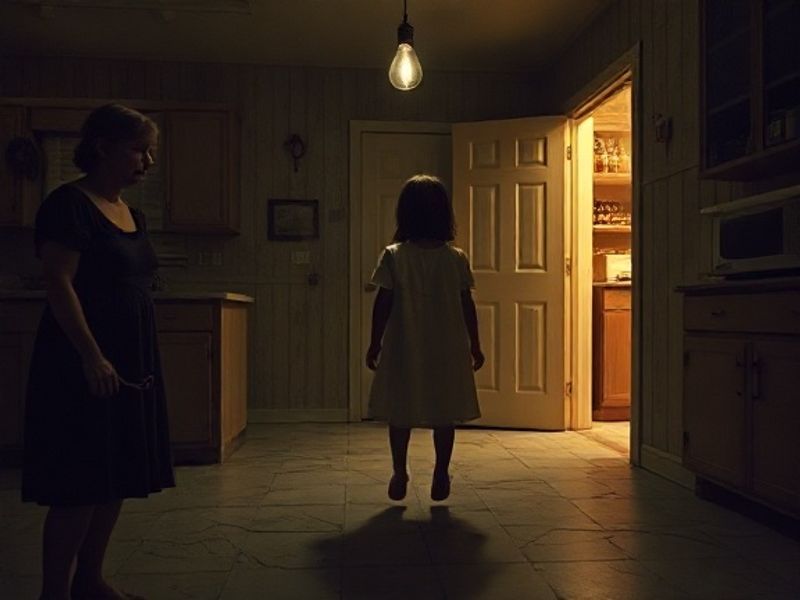Global Exorcism: How El Conjuro 4 Became the Planet’s Favorite New Superpower
The Devil Visits Netflix: How ‘El Conjuro 4’ Became a Global Diplomatic Incident
By the time Warner Bros. confirmed that *El Conjuro 4* (or, as the Anglos insist, *The Conjuring 4: Last Rites*) will exorcise theaters next year, the franchise had already racked up a body count in every major currency. More than two billion dollars at the box office, sure, but also one very real Bolivian ambassador who fainted during a Vatican screening, a South Korean subway ad campaign that required police crowd-control, and a Ugandan streaming bootleg so popular the government briefly considered adding “demon tax” to the national budget. Somewhere between the jump scares and the Latin chanting, the Warrens’ haunted greatest-hits tour has become the rare piece of American pop detritus that actually travels—like Coca-Cola, only stickier.
The fourth installment arrives just as the planet’s collective nerves are already frayed. Inflation, climate doom, and whatever fresh geopolitical hell greets us at breakfast have primed audiences for a villain they can hiss at without sparking a trade war. Enter the demon—no passport, no tariffs, and refreshingly non-partisan. Universal Pictures International, smelling blood in the holy water, has booked day-and-date releases from Reykjavík to Jakarta, betting that global anxiety is the most exportable special effect money can’t buy. If you’re wondering why NATO hasn’t sanctioned Beelzebub yet, it’s only because he’s outperforming most member states’ GDP.
Meanwhile, local censors are sharpening their knives. China’s Film Administration has requested edits to remove “religious superstition,” which is bureaucratese for “anything that makes the afterlife look more organized than social credit.” Saudi Arabia is mulling whether a crucifix-wielding Vera Farmiga violates Vision 2030’s moderation goals; clerics worry that screaming teenagers might drown out the subtle joys of economic diversification. France, ever the contrarian, is debating whether the franchise’s jump scares qualify as “cultural imperialism” or merely *mauvais goût*. The French solution, naturally, is to dub the entire film into whispered philosophy and pipe in accordion music whenever a demon appears. Voilà—existential horror.
Economists at HSBC have coined the term “demonflation”: a quarterly bump in popcorn sales that outpaces most emerging-market bonds. AMC theatres in Mexico City are selling limited-edition rosaries with bucket combos; the same trinkets are reselling on Mercado Libre for triple the price, right next to bootleg Stanley cups and actual black-market holy water blessed by a bishop who moonlights as an Uber driver. If you think capitalism can’t slap a QR code on salvation, you haven’t seen the NFT crucifixes the studio quietly teased on Discord. They sold out in six minutes—mostly to users whose profile pictures were also crucifixes. Meta-modernism, thy name is merch.
The geopolitical irony is thicker than pea soup. While Washington debates sending Abrams tanks to Ukraine, Kyiv’s cinemas are petitioning for more prints of *El Conjuro 4*, arguing that communal screaming is cheaper than therapy. In Tehran, bootleg copies circulate on Telegram channels with Farsi subtitles so florid they make the demon sound like a lovelorn poet from the 13th century. One reviewer noted that “even the possessed child recites Hafez better than our state TV anchors,” a backhanded compliment that has since become a protest meme. The Ayatollahs, unamused, have promised “swift justice,” though nobody can agree whether that targets the pirates or the poltergeist.
All of which raises the eternal question: why do we, the allegedly rational inhabitants of late modernity, still pay to watch American suburbanites scream in nightgowns? Perhaps because the alternative—watching actual suburbanites scream on the evening news—lacks a satisfying third act. The Warrens promise closure: evil identified, evil banished, roll credits. Real life prefers cliff-hangers and funding gaps. If *El Conjuro 4* grosses another billion, it won’t be thanks to jump scares; it will be because the world is desperate for a villain who can be defeated in two hours flat, preferably while holding a large soda.
So when the lights dim next summer, remember: that collective gasp you hear in seventeen languages isn’t fear of the devil. It’s relief that, for once, the horror on screen is somebody else’s problem—until the credits end and the house lights reveal we’re still sitting in it.







